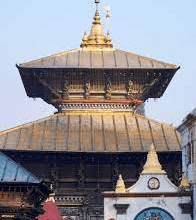Today’s presidential elections in Russia will determine Putin’s fate for the next six years despite the conflict in Ukraine
On Monday, March 15, Russia will begin voting, securing President Vladimir Putin’s hold on power until at least 2030. All opposition leaders who might have confronted President Putin have been sent overseas or are in jail. He has prohibited independent media sources that may provide criticism of his policies.

Furthermore, the 146 million-person nation’s political structure and election procedures remain tightly under the stern supervision of the Kremlin. Even yet, as Russia continues its two-year-old full-scale invasion of Ukraine, observers hoping to get some understanding of the big nuclear power will be keenly following the election.
Everything you need to know about the impending election, voting procedures, candidates, and whether or not it will be a free and fair election is provided here.
IN THE RUSSIAN ELECTION, WHO CAN VOTE?
Voting is open to all Russian citizens over the age of 18 who are not incarcerated due to a criminal record. There are 112.3 million eligible voters living in Russia and in Russian-occupied areas of Ukraine, according to the Central Election Commission, and an additional 1.9 million eligible voters reside overseas. In Russia’s 2018 presidential election, 67.5% of voters cast ballots; however, monitors and individual voters noted several irregularities, such as coerced voting and ballot-box stuffing. 51.7% of voters cast ballots in the 2021 parliamentary election.
When will the voting occur?
The majority of the nation’s voting will take place between Friday and Sunday. For the first time, polling will be open for three days instead of one during the Russian presidential election. The 2020 referendum on constitutional amendments arranged by Putin to enable him to run for two more terms was the first in Russia to employ multiple-day voting.
Online voting will be accessible in 27 Russian regions plus Crimea, which Moscow unlawfully stole from Ukraine ten years ago. This is also the first presidential election to employ this technology.
Even though Russian troops don’t have complete authority over them, the vote will also be held in the four areas that were seized during the full-scale invasion in 2022: Donetsk, Luhansk, Zaporizhzhia, and Kherson. The West and Kiev have objected to the referendum being held there. In some areas, early voting has already begun, and it will progressively spread to other areas.
A WHOLE BALLOT SET?
Putin, 71, is running as an independent and hopes to serve a fifth term in office, extending his tenure by six years. After he successfully pushes through constitutional amendments to reset his term limits in 2020, he will then be qualified to seek another term. He was voted to the Kremlin in 2000 and has held the position ever since Soviet leader Josef Stalin.
The Kremlin-aligned political groups with representatives in parliament, including the Communist Party’s Nikolai Kharitonov, the nationalist Liberal Democratic Party’s Leonid Slutsky, and the New People Party’s Vladislav Davankov, nominated other candidates for the vote. In 2004, Kharitonov faced off against Putin and came in a distant second.
In general, they support Kremlin policies, particularly the conflict in Ukraine. Such candidates are unlikely to get enough votes to oppose Putin, as previous elections have shown. In 2018, Putin received 76.7% of the vote, while the Communist Party’s runner-up received 11.8%.
Liberal politician Boris Nadezhdin, who made stopping the war his primary platform, had gathered an exceptionally large number of signatures to be eligible for the ballot. However, election authorities found many of those signatures to be invalid, so they disqualified him from running.
Notably absent from the vote are opposition leaders who may have challenged Putin. They have either left the nation or been imprisoned. Alexei Navalny, the most well-known opposition leader in Russia, passed away on February 16 in jail after being given a 19-year term for acts of extremism. His bid to challenge Putin in the 2018 election was turned down.
Is the Russian election going to be fair and free?
There’s hardly much optimism for a free and fair election among observers.
The ability to vote online and spread the voting over many days has drawn criticism from independent observers who claim that these measures would impede election transparency even further.
PACs said that there were indications of tampering in the 2021 parliamentary elections using digital voting. Voter stuffing was documented by activists, who also shared videos of coerced voting on social media.
The Organisation for Security and Cooperation in Europe’s International Election Observation Mission said that there was “continuous pressure on critical voices” throughout the 2018 presidential election, which resulted in a lack of true competition.
Even more, does the election matter?
The vote, according to political expert and former speechwriter for Putin Abbas Gallyamov, “replaces multiple choice with a simple, dichotomic one: ‘Are you for or against Putin?'” He said that a vote for Putin would be a vote in favour of going to war, calling for a “referendum on the issue of the war.”
However, the shattered and weaker opposition views the election as a relatively restricted chance to express dissatisfaction with Putin and the conflict, as there are no viable alternatives to him on the ballot.
Sunday is the last day to vote, and Navalny asked people to vote at noon to send a message that the authorities cannot ignore just before he passed away.
“Putin sees this election as a vote on whether or not his actions are approved.” Vote to approve the war,” Navalny had said in a message released from prison. “Let’s thwart his plans and ensure that, on March 17, everyone in Russia realises that Putin must go and that nobody is interested in the phoney outcome.”







